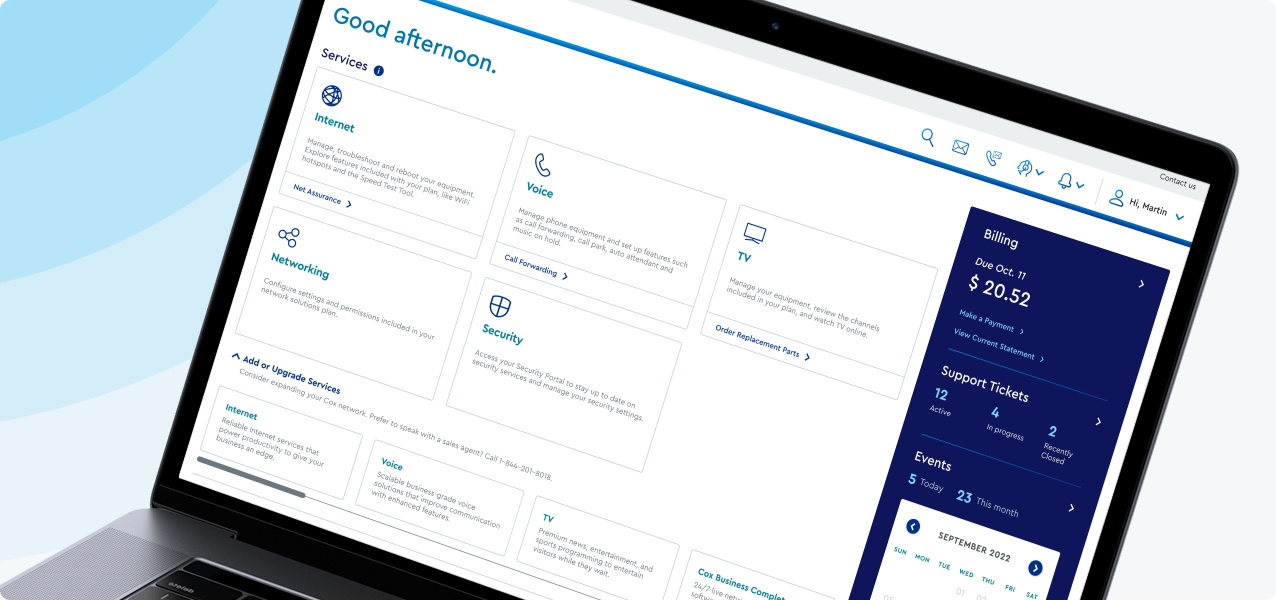Cox Business Email virus protection helps defend Cox Business Internet customers from receiving hazardous computer viruses via email. This service is automatically activated and does not need to be configured.
Incoming Email
Messages sent to your business email accounts that are hosted on Cox mail servers are checked for viruses before being delivered to your Inbox or WebMail. If an incoming email contains an attachment with a known virus, the infected attachment is deleted. However, the main body of the email and any uninfected attachments are delivered to your Cox mail account along with an attached message indicating a virus was detected. No communication is sent to the email sender.
Note: If an incoming email is infected within the body copy or has an infected attachment that cannot be deleted, the entire email is deleted without notification to you or the sender.
Outgoing Email
If an outgoing email contains a known virus in the body of the email or the attachment(s), the infected email is not sent to the intended recipient. No notification is sent to the recipient or the sender.
Note: Cox does not provide virus notification because in typical situations, most viruses contain a fake or forged from and reply address and are often unknowingly distributed in bulk mass mailings from a computer that has been the unsuspecting victim of a security breach. If we send multiple notices to the sender of such emails, they would likely be sent to the fake or forged address, making notifications an ineffective communication.
Cox Business Services does not read the content of your email messages. This automated solution only detects viruses.
Note: Although the anti-virus solution provides protection against viruses transmitted via email, the email virus protection service does not prevent downloading of virus-infected files, nor does it remove viruses already present on a computer. For maximum protection, Cox recommends the use of anti-virus software on your PC.
Avoiding Viruses
Below are a few simple steps to help you avoid receiving a virus.
- Do not open an email attachment if you do not know the sender. If the message text or attachment name seem odd, even if you know the sender, question the authenticity before opening it.
- Scan all attachments and files you receive with a frequently updated anti-virus program.
- Do not download from sites you are unfamiliar with or sites that may be questionable.
- Update your virus definitions and run a full system scan twice a month.
- Do not download programs using file sharing software. Experts estimate that over 70% of the software downloaded through file sharing programs is infected with a Trojan or virus.
